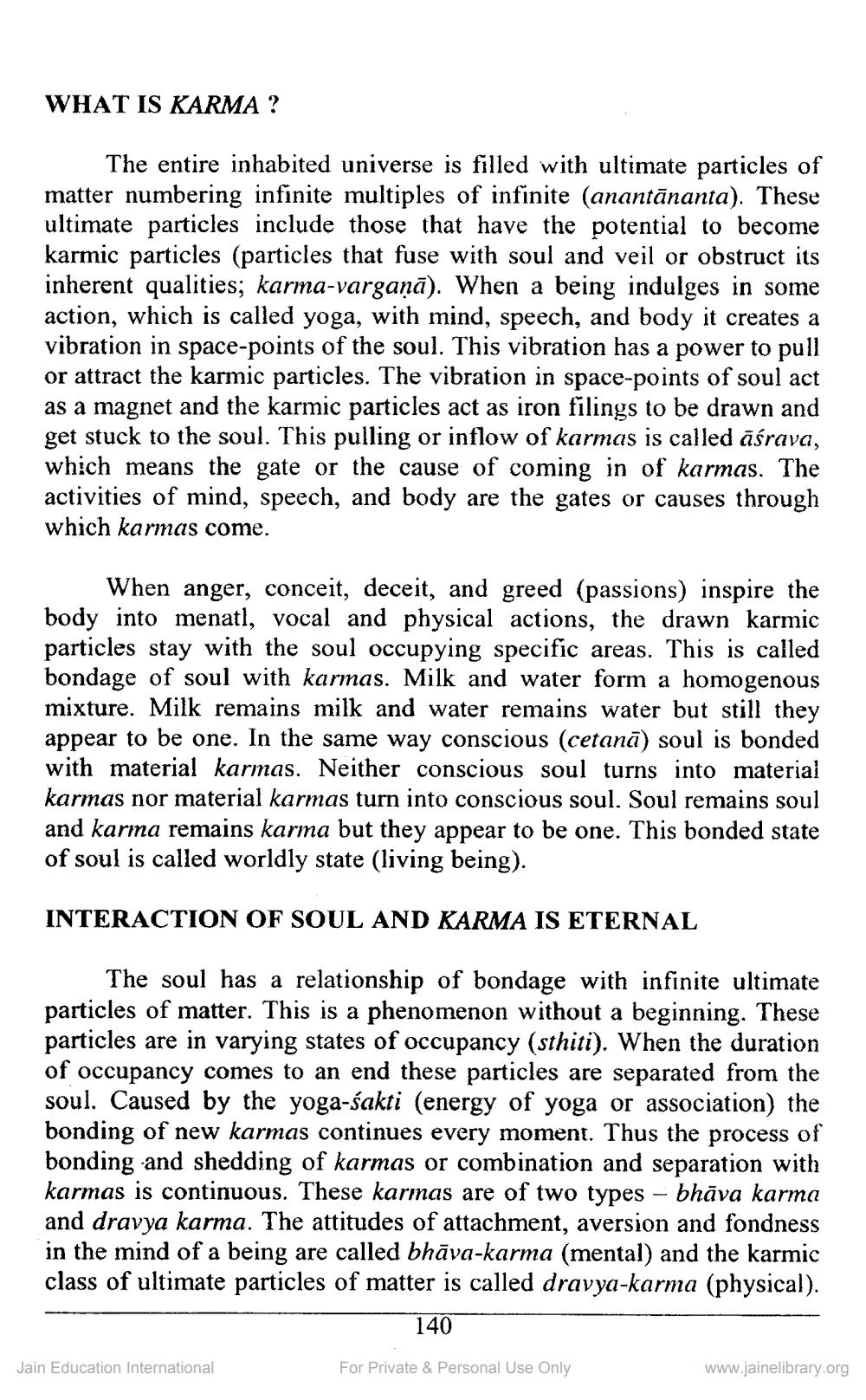________________
WHAT IS KARMA?
The entire inhabited universe is filled with ultimate particles of matter numbering infinite multiples of infinite (anantānanta). These ultimate particles include those that have the potential to become karmic particles (particles that fuse with soul and veil or obstruct its inherent qualities; karma-vargaņā). When a being indulges in some action, which is called yoga, with mind, speech, and body it creates a vibration in space-points of the soul. This vibration has a power to pull or attract the karmic particles. The vibration in space-points of soul act as a magnet and the karmic particles act as iron filings to be drawn and get stuck to the soul. This pulling or inflow of karmas is called āśrava, which means the gate or the cause of coming in of karmas. The activities of mind, speech, and body are the gates or causes through which karmas come.
When anger, conceit, deceit, and greed (passions) inspire the body into menatl, vocal and physical actions, the drawn karmic particles stay with the soul occupying specific areas. This is called bondage of soul with karmas. Milk and water form a homogenous mixture. Milk remains milk and water remains water but still they appear to be one. In the same way conscious (cetanā) soul is bonded with material karmas. Neither conscious soul turns into material karmas nor material karmas turn into conscious soul. Soul remains soul and karma remains karma but they appear to be one. This bonded state of soul is called worldly state (living being).
INTERACTION OF SOUL AND KARMA IS ETERNAL
The soul has a relationship of bondage with infinite ultimate particles of matter. This is a phenomenon without a beginning. These particles are in varying states of occupancy (sthiti). When the duration of occupancy comes to an end these particles are separated from the soul. Caused by the yoga-sakti (energy of yoga or association) the bonding of new karmas continues every moment. Thus the process of bonding and shedding of karmas or combination and separation with karmas is continuous. These karmas are of two types - bhāva karma and dravya karma. The attitudes of attachment, aversion and fondness in the mind of a being are called bhāva-karma (mental) and the karmic class of ultimate particles of matter is called dravya-karma (physical).
140
Jain Education International
For Private & Personal Use Only
www.jainelibrary.org




